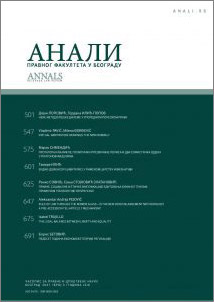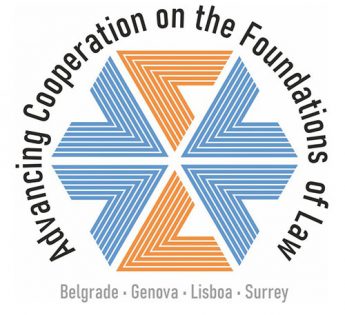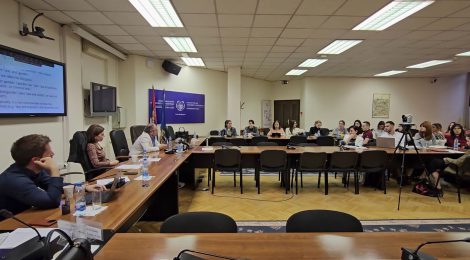
Spring School/Pilot Master Program on Law and Gender
The University of Belgrade Faculty of Law, in collaboration with the OSCE Mission to Serbia, recently organised the Spring School/Pilot Master Program on Law and Gender. The OSCE Mission to Serbia supported the preparation of the Spring School curriculum and the profiling of the lectures as well as the unfolding of the School from the beginning up to the end.
The event took place from Monday, 22 May to 5 June, 2023. The opening ceremony of the Spring School on Law and Gender was held on Monday, 22 May at the Faculty of Law, with both in-person and online attendance options. The event was inaugurated by representatives from the OSCE Mission to Serbia, alongside the Faculty representatives.
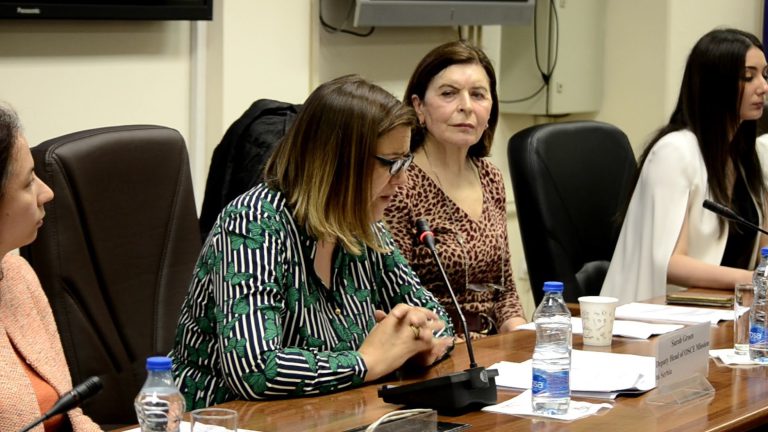
The start of the Spring School was announced during the opening ceremony by Sarah Groen, Deputy Head of the OSCE Mission to Serbia, Vice-Dean Assist. Prof. Dr Nina Kršljanin, and Prof. Dr Dragica Vujadinović, the Head of the LAWGEM project and coordinator of the Spring School. A total of 69 candidates, including Serbian (47) and international (22) undergraduates, MA, and PhD students, participated in this Spring School. The Spring School adopted a hybrid format, which allowed a considerable number of foreign students to join the program remotely. Participants hailed from various countries, including Albania, Belarus, Bosnia and Herzegovina, Brazil, China, Croatia, France, Germany, India, Iran, Italy, Montenegro, Russia, Serbia, and Vietnam, demonstrating their dedication and intense involvement over the two-week duration of the school.
All attendees were required to complete four compulsory courses: Feminist Political and Legal Theories, Human Rights Law with a Gender Perspective, International and European Law and Gender Equality, and Feminist Judgements. Additionally, they were obliged to participate in two mandatory skill-based courses: Methodology and Practical Skills, and the Gender Equality Legal Clinic. Furthermore, each student had the opportunity to select five optional courses from a pool of eleven. The optional courses included Public Law and Gender Equality, Gender Issues in Comparative Legal History, Gender Economics, Gender Equality and Business Law, Gender Equitable Taxation, Gender Competent Criminology, Gender Competent Criminal Law, Gender Competent Family Law, Sociology of Law and Gender Equality, Public Policies and Gender Equality, and Gender Perspective in Labour Law. Each course consisted of three lectures, with continuous encouragement of active student participation and discussions.
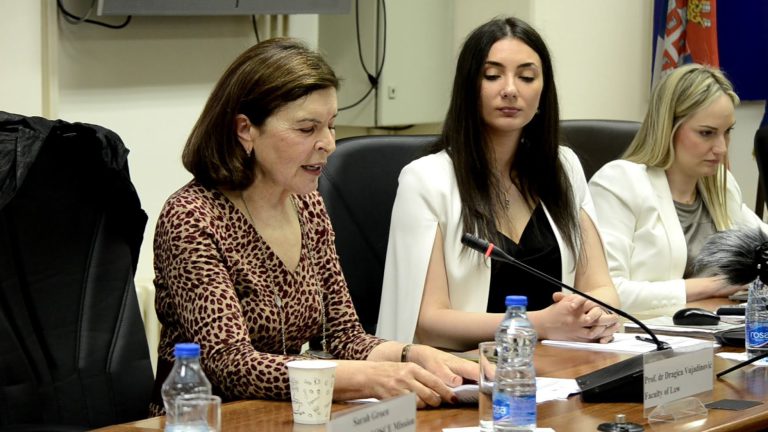
This Spring School was developed within the framework of the recently concluded European Commission’s Erasmus Plus Strategic Partnership in Higher Education Project, titled “New Quality in Education for Gender Equality – Strategic Partnership for the Development of Master’s Study Program LAW AND GENDER – LAWGEM”. The LAWGEM project aimed to create a gender equality-focused curriculum for legal studies. The curriculum was accompanied by the publication of the textbook edited by D. Vujadinović, M. Froehlich, Th. Giegerich, Gender Competent Legal Knowledge, issued by Springer, which is an open access publication, found at https://link.springer.com/book/10.1007/978-3-031-14360-1 The University of Belgrade Faculty of Law acted as the project coordinator, while the consortium universities included LUMSA U in Palermo, Italy; Cadiz U in Spain; Saarland U in Germany; and Orebro U in Sweden. The Master’s study program is currently undergoing accreditation and is intended to be implemented at the University of Belgrade Faculty of Law, upon completion of the accreditation process. The Spring School served as a pilot program for the future Master’s study program on Law and Gender. All the courses from the curriculum were covered during the Spring School, and the reading materials primarily comprised publications produced within the LAWGEM project (besides the mentioned textbook, the book series “Gender Perspectives in Law”, co-edited by D. Vujadinović and I. Krstić and issued also by Springer, with already published four books: D. Vujadinović, A. Alvarez de Cuvillo, S. Strand eds. Feminist Approaches to Law – Theoretical and Historical Insights, M. Davinić and S. Kostić eds. Gender-Competent Public Law and Policies, I. Krstić, M. Evola, M. I. Ribes Moreno eds. Legal Issues of International Law from a Gender Perspective, G. Carapezza Figlia, Lj. Kovačević, E. Kristoffersson eds. Gender Perspectives in Private Law, as well as the book Lj. Kovačević, D. Vujadinović, M. Evola eds. Intersectional Discrimination of Women and Girls with Disabilities, issued by the University of Belgrade Faculty of Law.
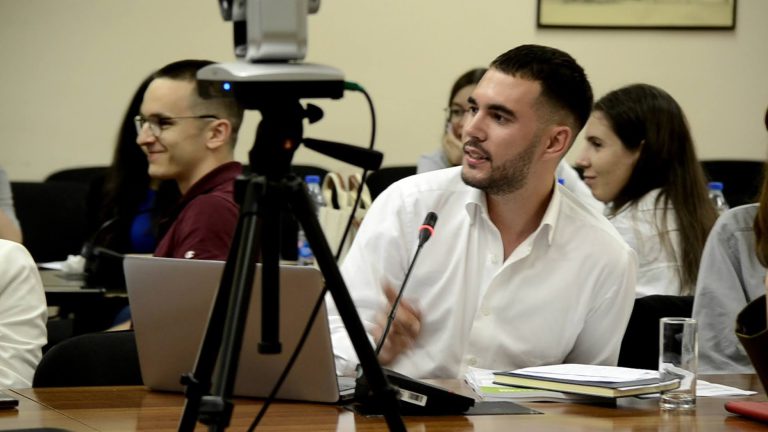
The Spring School program maintained a high standard of lecture delivery and fostered interactive engagement throughout the two-week duration, from start to finish. The Spring School showcased the exceptional lecturing skills and pedagogical expertise of distinguished scholars from the University of Belgrade Faculty of Law, effectively preparing them for the future implementation of the Law and Gender master’s study program. It is worth noting that two visiting lecturers from the LAWGEM consortium partners, Orebro University and LUMSA University, also participated in the Spring School.
On the final day, 5 June, the participants concluded their substantial work and attended the closing ceremony, where they received certificates. The closing of the Spring School was presided over by Ambassador Jan Braathu, Head of the OSCE Mission to Serbia, and Prof. Dr Dragica Vujadinović.
Ambassador Braathu delivered a speech during the ceremony, emphasizing the international nature of the Spring School and the significance of its focal point – gender equality. He highlighted the importance of cooperation among young scholars from the region and across the world, underscoring the need for collaborative discussions on gender, intersectionality, and diversity within this educational setting.
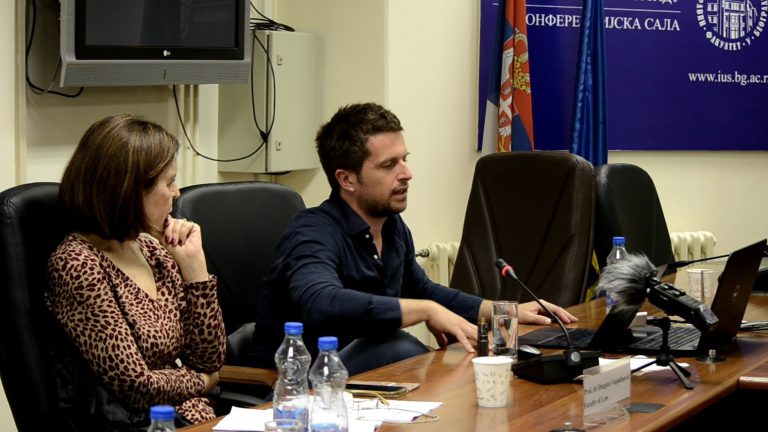
Ambassador Jan Braathu also distributed certificates and certificate addendа to the participants from Belgrade, as well as to the lecturers.
The Spring School was meticulously organised according to a well-defined agenda, ensuring the smooth execution of administrative tasks. To facilitate a successful implementation of the Spring School and provide students with continual access to relevant materials, all relevant information, reading materials, course presentations, and lecture recordings were made available on the Moodle platform. Additionally, the recordings of the lectures will be uploaded to the LAWGEM Life Long Learning Platform (http://lllp-lawgem.ius.bg.ac.rs) to disseminate the results of the Spring School. These recordings will also serve as valuable resources for future lectures within the Law and Gender master’s study program.
It is highly likely that many of the registered participants will apply the knowledge gained from the Spring School to enhance their professional profiles. They are expected to promote the importance of gender mainstreaming in higher and legal education, as well as across various domains of social life. Furthermore, a considerable number of them may choose to enroll in the future Law and Gender master’s study program.
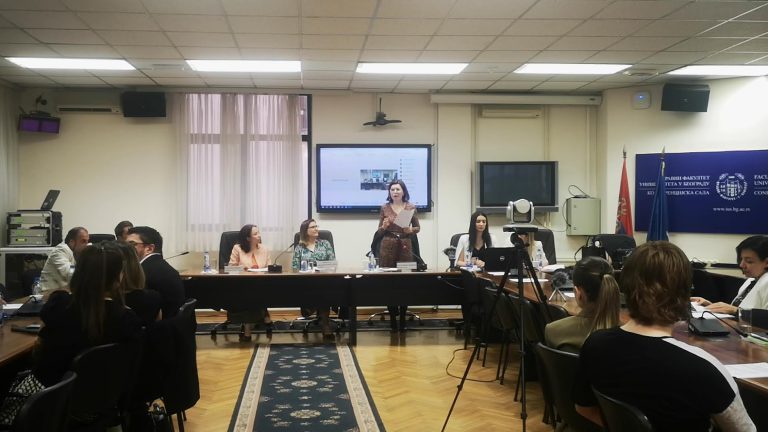
Gallery: https://photos.app.goo.gl/gZZ69EFex4KwRNT69
Certificates: https://photos.app.goo.gl/phDqk3C9CLtZj5Lx7


